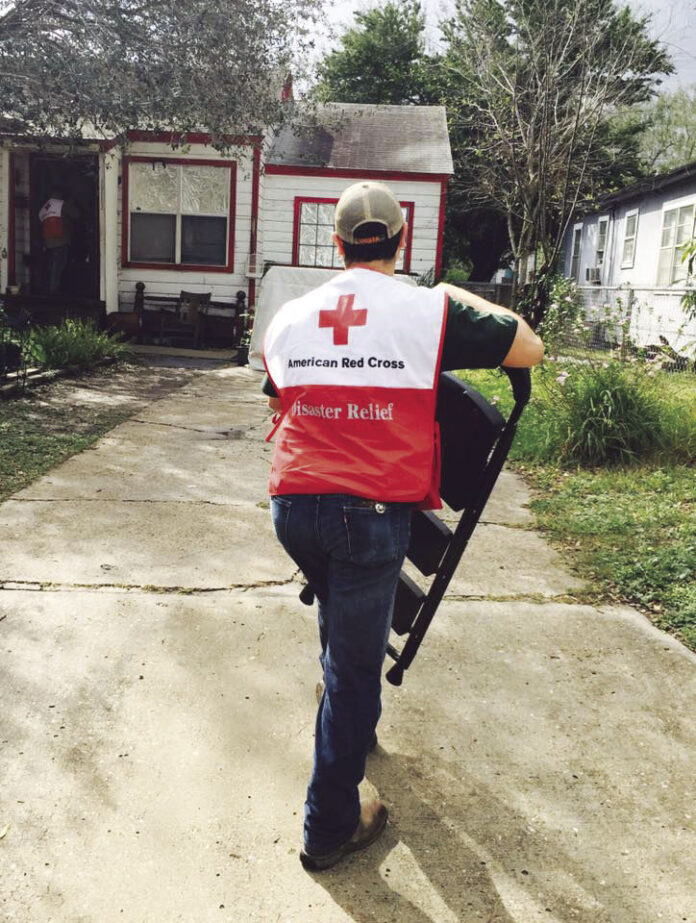HARLINGEN — Local firefighters went door-to-door installing smoke detectors in homes with the help of the American Red Cross.
Over the course of the afternoon on Saturday, Feb. 4, more than 80 smoke detectors were put into the homes of Harlingen residents.
It was the second year the Harlingen Fire Department has teamed up with the American Red Cross chapter in Harlingen in an effort to prevent fire to homes in the city.
“Fire prevention is our first line of defense, therefore, educating our community is key,” said Jaime Quiroga, Harlingen Fire Department lieutenant. “The American Red Cross, along with efforts from our entire local fire department, allows us the opportunity to do so by offering such service, installing free smoke detectors.”
Quiroga said it is always great to collaborate with other organizations in efforts to bring awareness and take measures toward keeping the community safe.
The American Red Cross’s Fire Preparedness Campaign is a five-year program that is in its third year.
It is geared to reducing death and injury by fire and educating the community about the importance of smoke detectors for the home.
The program helps low-income families by supplying and installing the smoke detectors in homes.
On Tuesday, the fire department went out again into the neighborhoods and installed another 60 smoke detectors that were needed.
“They have been on board with this, and they are determined to save lives by installing theses smoke detectors,” said Lena Romero, American Red Cross-Harlingen disaster program manager. “The main goal is to make homes much safer.”
Homes selected for initiative were notified by message sent home to parents with their children in the Harlingen school district.
Romero said they are interested in helping any community that is interested in receiving home smoke detectors.
She said old frame homes with no smoke detectors are like tinder waiting to be lit.
“Today, cities have requirements for hard wire smoke alarms,” Romero said. “It was not required many years ago.”




